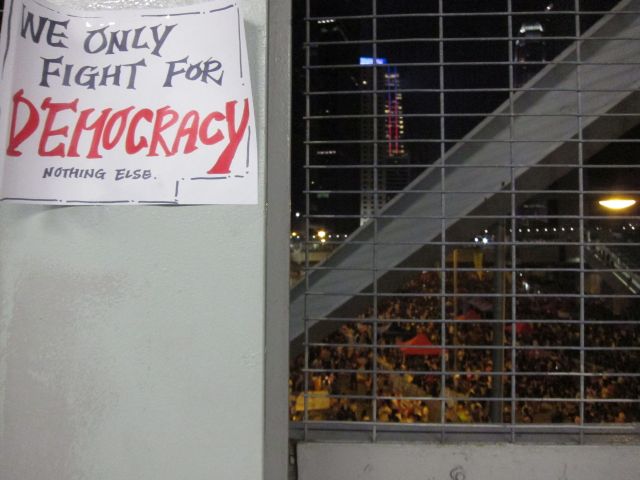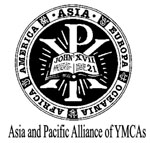APAY Regional Climate Change Conference
The APAY Regional Climate Change Conference was held during October 24-27, 2014 at Kuala Lumpur YMCA, Kuala Lumpur, Malaysia. About 20 YMCA leaders representing different countries of the Asia and Pacific, who have special interest in climate change participated at the conference. Kohei Yamada, General Secretary of APAY inaugurated the Conference, Dr. Jai Chang Park, former President of the APAY, presented an overview of the climate change issues of the world today at the opening session. Annegret Zimmerman, Senior Policy Advisor of Bread for the World, Germany, Colin Lambie from Australia, Chairperson of the Green Team, Y’s Men International, Gurmeet Singh a leading environmentalist of Malaysia, Lim Li Lin from Third World Network were the resource persons of the Conference. The participants dwelt on action plans for the YMCAs to combat climate change and prepared a statement, Kuala Lumpur Declaration, as the position paper of APAY in terms of climate change at the conference. The National Council of YMCAs of Malaysia and the Kuala Lumpur YMCA hosted the conference.
The Kuala Lumpur Declaration
Preamble :
The Asia and Pacific Alliance of YMCAs comprises the 27 YMCA movements of the Asia Pacific region. Around twenty members representing various YMCA movements from this region came together for the APAY Conference on Climate Change in Kuala Lumpur, Malaysia, from 24 – 26 October 2014.
The APAY Conference on Climate Change was an important opportunity for participants to delve into the different aspects of climate change, examine the diverse environmental activities of the YMCAs of our region, and finally formulate an APAY position paper on climate change.
Our Learning and Concerns :
During the conference we learnt that, as the Intergovernmental Panel on Climate Change (IPCC) has concluded, present day climate change is attributed directly or indirectly to human activity that alters the composition of the atmosphere due to accumulation of greenhouse gases. A major cause of the global increase in carbon dioxide concentration is the excessive use of fossil fuels.
Climate change has led to rises in sea level and more extreme weather (including rainfall variability, frequency and the associated intensity of storms etc.), as well as the negative impact on our health, ecology, environment and the economy. It is unjust that they who suffer the most from climate effects today, and even more in the future, have contributed the least to them.
In view of the increased volume of mass global tourism, the YMCA can play a pivotal role promoting, organizing, and implementing alternative tourism in its hostels, hotels, tourism services and products that is climate-sensitive.
We, individually and collectively, need to take urgent action in limiting carbon emissions, and building up our resilience to climate change. Inter-governmental discussions are to be encouraged that result in appropriate and fair mitigation of and adaptation to climate change.
Good practices are already taking place in a number of YMCAs for climate change mitigation and adaptation, and these experiences need to be shared with and replicated in other YMCAs.
Climate change should be a major concern for the international community including, the YMCA.
Our Vision
The Asia and Pacific Alliance of YMCAs recognizes the scientifically analyzed human factor in climate change, and understands the scale and urgency of the problem that it has to help address immediately. The APAY is committed to reducing carbon emissions through various environmental activities in all national YMCA movements, ecologically sustainable programs including community-based tourism, raising awareness of climate issues, and developing organizational capacity to maximize our efforts to counter climate change.
Challenge 21, the most recent interpretation of the mission statement of the YMCAs, calls us to “defend God’s creation against all that would destroy it and preserving and protecting the earth’s resources for coming generations”. This reminds us of our responsibility as members of the YMCA community to work towards restoration of God’s creation. We envisage that all YMCAs shall be climate-sensitive and committed towards building sustainable communities with a decreased climate change impact. We also commit to work towards limiting global emissions to keep the Earth’s warming to no more than 2 degrees above pre-industrial levels.
Call for Action
We hereby urge the YMCAs of all levels of our region…..
…..to conduct a carbon audit of their respective YMCAs, and take effective measures to reduce carbon emissions by lowering energy consumption, preventing energy waste, promoting recycling and re-using, sharing facilities, and promoting and utilizing renewable energy when and wherever possible.
…..to raise awareness about climate change by making their YMCAs more green, mobilizing the youth to engage in green-conducive activities, forming Green Teams to co-ordinate, promote, and enhance green initiatives, promoting ecologically sustainable tourism, holding conferences online to limit or even avoid travelling.
…..to mobilize funds for environmental projects and make environmental technical knowledge and wisdom easily available.
…..to establish networking and collaboration with relevant governments and climate change- related organizations.
We call for the genuine involvement of YMCAs in do-able action programs, working for and with poor and marginalised communities who are victims of climate injustice, and supporting grass-roots communities to build resilience to climate change.
We shall promote and implement sustainable and climate-sensitive tourism through GATN that is community-based, in contrast to commercial tourism that is heavily dependent on fossil fuels use.
We will involve ourselves in study and research on climate change issues and challenges, assisted through collaboration with organizations and academic institutions that are specialists in the area.
We also commit to change and condition our own lifestyles to be more environment-friendly.
We see as crucial that the APAY Resource Group on Climate Change, Green Team, and GATN are empowered to be the voice for climate change victims through active involvement in climate change advocacy and lobby initiatives.
Finally, we envision that all YMCAs shall commit themselves towards becoming carbon neutral by 2025.
~ Duncan Chowdhury, Executive Secretary
"Change Agents" & "Youth Rep" new recruitment plan for 2015-2017
New Change Agent & Youth Rep program recruitment has been announced concurrently by World Alliance of YMCAs and APAY. Change Agents & Youth Rep programs are two different groups. The second Change Agent cohort programs will be coordinated by the World Alliance of YMCAs, and will recruit 300 young leaders around the world for the next class (2015-2016). APAY will nominate 60 Change Agents for 2015/2016 term. APAY “Youth Rep” programs are coordinated by the APAY, and APAY will recruit 40 young leaders from the Asia Pacific region. For both Change Agents and Youth Rep, the APAY will work in partnership with the National YMCAs to identify strong, dynamic candidates to serve as YMCA Change Agents & Youth Rep on behalf of their local and National YMCAs.
Change Agents will have two global training programs (the first one will be in August 2015), on-line training and Web base training. Change Agents training programs will be all coordinated by the World Alliance of YMCAs.
Youth Rep will meet APAY 19th General Assembly in Korea 2015 with existing 40 APAY Youth Rep. Also they could attend one of the Global Citizenship Institutes, an Executive Committee meeting, a Regional youth conference, and on-line and Web base training. Each Change agent and youth Rep will receive a mentor. Mentorship program will be starting in October next year.
We ask all the National movements select Change Agents and Youth Rep as the following criteria;
|
Change Agents |
Youth Rep |
| Coordinated |
World Alliance of YMCAs |
Asia Pacific Alliance of YMCAs |
| Target Age |
18-30 (Volunteers & staff) |
22-35 (Volunteers & staff) |
| YMCA engagement |
Minimum of 2 years of service as volunteer. Active engaged in the local level. Respected by its close young peer leaders. Demonstrates wiliness for long term service to the YMCA. |
Minimum of 2 years of service as staff or volunteer. Active engaged in the local level. Respected by its close young peer leaders. Demonstrates wiliness for long term service to the YMCA. |
| Skills/Knowledge |
Proven leadership capacity and skills. Able to communicate in English and National language.
Basic level training on Governance on local and national level (preferable) participation in key national/International youth initiatives/network (eg. Global Citizenship Education)
|
Proven leadership capacity and skills. Able to communicate in English and National language.
Basic level training on Governance on local and national level (preferable) participation in key national/International youth initiatives/network (eg. Global Citizenship Education)
|
| Program Capacity |
60 Change Agents will be selected |
40 Youth Reps will be selected |
| Commitment |
2 Years (January 2015-January2016) |
2 Years (March 2015-March 2017) |
| Events |
Regional training
2 Global training programs
On-line training
4 mandatory assignments
Web based training
|
GA +YA Assembly in Korea
one Global Citizenship Training
one EC Meeting (optional)
Regional Youth Conference
On-line training
5 mandatory assignments
Web base training
|
| Mentorship |
Introduce one senior YMCA leader |
Introduce one senior YMCA leader |
Global Staff Team (GST)
There are 119 YMCA movements in the world and under the World Alliance (Geneva, Switzerland), and there are four regional areas & two big country movements and the Middle East Committee. From those seven areas and countries, Global Staff team has been formed to align and coordinate global movements. The GST meeting was held on October 31 - November 2 in Geneva. I here share some of the key discussions of evaluation of the last four years (2011-14) and new prospect for the next four years (2015-18).
NGS meeting
The World Alliance sees the NGS meeting as a tool for global branding of the Youth Empowerment. After the World Council 2010, NGS meetings have been conducted separately in England (Feb. 2012)→ Germany (Feb. 2013)→ World Council 2014, & will be held in Mexico 2015 (Feb. 17-20).
World Challenge in 2015
It will be done on June 6, 2015 by Soccer shooting in all over the world. We celebrate together the birth of YMCA movement on June 6 by the “World Challenge” in all over the world.
Sweden’s Proposal at the World Council
That was about “YMCA could be a radically inclusive organization” to the handicapped, Sexual minorities, the economically difficult, and etc. It could be controversial and therefore we need to create a platform to discuss the guideline under a special task team. Each area will be sending two persons for the discussion team once the guideline is made.
Evaluation of the New WAY strategies
-
Youth Empowerment: the first research was conducted in 2011 and identified four basic areas of youth concern, “Employment, Health, Environment and Civic Engagement”. That brought Nairobi Declaration of Change Agent as a YMCA branding strategies. The last Change Agents were recruited from 63 movements. A Global Research “One Million Voice” has been under way finding out the youth voices and trend of the above four areas of concern. Collective effort for youth empowerment was seen in World Council in 2014. The challenge is now how we can expand the numbers and how much we can create platforms for social changes.
-
Movement Strengthening: with Global Operating Pan strategies, 43 movements have been supported. We found out that youth Empowerment is an essential strategy of the Movement Strengthening. We will continue to support with multi-lateral approach. Use Youth Empowerment, Global survey, and Governance Policy as tools for this process. Main challenges are; 1) Staff capacity and leadership, 2) Governance, and 3) lack of Strategic plan. We agreed that Area should lead the MS process, continuing Multi-lateral approach and need more innovation in Resource mobilization, youth empowerment, global research, and governance/ leadership development.
-
Resource Mobilization: 49 national movements have engaged in training for the Resource mobilization. One million dollars were raised through Investor’s Circle but 25% of them were not collected as pledged. We identified and learned that Training lay leadership is more important.
Plan for 2015
2018 visions for the youth empowerment
- 600 change agents (first two years 300) from 70 National movements reaching and involving 2 million young people
- As the result of Global Survey (One Million Voice) data analysis, engaging in actions and advocacy in four areas of youth concerns
New cohort of Change Agents (CA) will be recruited by the end of February 2015. The target is 300 from 70 movements. Global training will be conducted from March 2015 by the World Alliance and in August 2015 (and spring or summer of 2016). The first global meeting for the new Change Agents will be held on the Peace Boat from August 21 departing from Yokohama, Japan to September 1 arriving at Singapore.
Resource Mobilization by the World Alliance
World Alliance will need resources for capacity development, for youth empowerment, and for the One Million Voice Survey. New WAY (new strategies of the World Alliance of YMCAs) is conducting Social Enterprise models such as Peace boat and Alternative tourism.
Movement Strengthening
World Alliance will focus on country focus approach, with board development for better Governance, conducting global researches for global advocacy and social engagement, developing communication tools for interactive platform, searching better economic model for successful Resource Mobilization, and increasing Membership of young people three times more globally. GST members agreed that the governance, staff management capacity, strategic planning and communication are the important aspects of potential growth for any movement on the basis of the present three pillars of mission clarity, program relevancy and institutional viability.
One Million Voice Survey
66 movements have been involved in the data collection. That will be ended by Dec. 2014, and analysis would be completed by June 2015, then the report would be made by November 2015. The country data would be useful for the participating movements.
The global survey will make more understanding of what young people are thinking in each area and as a total. This is becoming a new tool for young people to engage in programs and advocacy roles in those areas.
~ Kohei Yamada, General Secretary
Festival of Justpeace in Bangladesh
The ICF national forum in Bangladesh, along with Shanti Mitra, the local peace school, MCC Bangladesh, and MATI, an environmental justice organization, helped plan a Festival of Justpeace on November 6 and 7, 2014. This festival was the second such festival to be organized in Mymensingh. Its focus is on peace-related issues and includes workshops, children’s activities, film showings, exhibition booths, art exhibits, photo displays and cultural performances. ICF forum members played an important role in helping organize and facilitate the festival which saw several thousand visitors over the two-day period.
~Max Ediger, ICF Director
My Renewed YMCA Calling by Maria Cristina Miranda
‘And we know that all things work together for those who love God, who are called according to His purpose’ – Romans 8:28
 I am grateful to share with our YMCA family my renewed calling to fulfill the movement’s mission through the Executive Secretary for Resource Mobilization and Programs position. I am grateful to share with our YMCA family my renewed calling to fulfill the movement’s mission through the Executive Secretary for Resource Mobilization and Programs position.
My YMCA involvement is rooted 22 years ago when I became a member of Hi-Y Club of YMCA Nueva Ecija, Philippines. The Hi-Y academic and non-academic activities taught me good sportsmanship. The involvement however was deferred as I focused in university life. Nevertheless, I found my way back to YMCA Nueva Ecija while I worked as a University Lecturer through supporting youth empowerment activities. The commitment to engage youth in pro-active education and capacity building grew stronger and paved way to becoming a lay leader in local and national level.
Through the confidence and trust of YMCA Leaders, I was able to deepen the realization of our mission through engagement in the Asia Pacific Alliance of YMCAs and the World Alliance of YMCAs as a Youth Leader (Chair, Youth Participation and Leadership Development Committee), an experience that contributed in my organizational and leadership development capacity and skills particularly in working within a diverse culture and context.
The various experiences strengthened my passion to give back to my local community. Thus, I served as Program Coordinator for Ecumenical Asia Pacific Students and Youth Network (EASY Net), 2009-2011; and the YMCA of Makati, Inc., 2011-2014; and as Social Mobilization Officer for the Integrated Shelter and WaSH (Water, Sanitation and Hygiene) Program of Catholic Relief Services Typhoon Haiyan Rehabilitation and Recovery (2014). My responsibilities included over-all program management, facilitation of capacity building and skills development training, active leadership to promote the life and work of the movement and serves as liaison officer to strengthen partnership with local, national, global movements and partner institutions, social preparation of communities affected by Typhoon Haiyan.
My academic background of Bachelor of Arts in Mass Communication and Master of Community Development provides me relevant principles, tools, approaches and strategies that are meaningful to our mission of extending Christ’s love in our communities. More importantly, the above mentioned summary of academic and community-based experiences has taught me to build trust and strong relationships with the people I worked with.
~ Maria Cristina L. Miranda
Hong Kong People's Protest
'Universal Suffrage with Chinese Characteristics'
November 10, 2014
For more than six weeks, major roads in three districts of Hong Kong have been occupied by protesters—Admiralty outside of the offices of the Hong Kong government on Hong Kong Island, the major tourist area of Causeway Bay on the same island and across the harbor in Kowloon in the working class area of Mongkok. Led by university and high school students with support from Occupy Central with Love and Peace, a loosely linked group of citizens that was created by academics and a Baptist pastor in January last year, the main message of the people who have been living on the streets in tents and those who join them after work every night is clear and simple: they want genuine universal suffrage for the election of Hong Kong’s governor, or chief executive as the position is officially known here, in 2017.
One can perhaps best understand the current frustration of Hong Kong’s people by scanning the relevant article of Hong Kong’s min-Constitution, Article 45 of the Basic Law, which states in part:
The method for selecting the Chief Executive shall be specified in the light of the actual situation in the Hong Kong Special Administrative Region and in accordance with the principle of gradual and orderly progress. The ultimate aim is the selection of the Chief Executive by universal suffrage upon nomination by a broadly representative nominating committee in accordance with democratic procedures.” [italics added]
The “actual situation” in Hong Kong is that thousands of people have been occupying the streets of the city because they are dissatisfied with the Aug. 31 proposal of the Standing Committee of the National People’s Congress (NPC) in Beijing for nominating the candidates for the 2017 chief executive election. The decision of the NPC Standing Committee is that 1,200 people in this city of 7.2 million people will comprise the nominating committee to choose the candidates for the election—the same formula as the 2012 chief executive election except that now the nominees will require the support of more than half of the nominating committee members instead of 12.5 percent as they did in 2012. Consequently, local people view this higher nomination threshold as not “gradual and orderly” but as a regressive step backwards. Moreover, Hong Kong’s people, a largely affluent and well-educated community, have been waiting patiently since the mid-1980s under the colonial rule of Britain to fully and directly elect all of their political leaders.
In addition, those protesting for a faster and more genuinely democratic political system question whether the proposed 2017 nominating committee will be “broadly representative” but will rather be like nominating committees for previous chief executive elections: a nominating committee filled with members who are highly supportive of the Chinese government and the local business community with a sprinkling of advocates for democracy. Thus, the two or three candidates expected to be produced by the 2017 nominating committee will be from one side of the political spectrum. Consequently, Hong Kong’s people may be able to participate in a free and fair election in 2017 through universal suffrage with one person, one vote, but the competition to be chosen as a candidate will come from a narrow political bandwidth. Therefore, although Hong Kong’s people will have the right and ability to vote, they may not want to elect any of the candidates.
Lastly, Hong Kong’s people are protesting, because they feel that the Hong Kong government is not representing the views of the people of Hong Kong to the Chinese government. Conversely, they see over and over again that the local government continually conveys the views of the Chinese government to Hong Kong’s people. Thus, in 2017, would Hong Kong’s people be electing a chief executive to represent them or just another Chinese official in another city of China? The concern of local people is that through this process “one country, two systems”—the formula for the relationship between Hong Kong and China until at least 2047—will become “one country, one (de facto) system.”
 |
← A sign at the protest site in Admiralty near the Hong Kong Government office complex express why people have been occupying the streets for more than six weeks. (Photo by Bruce Van Voorhis)
|
 |
← Simply to have their views respected and taken seriously is one of the sentiments expressed by a sign at the protest site in Admiralty near the Hong Kong Government office complex. (Photo by Bruce Van Voorhis)
|
~ Bruce Van Voorhis, ICF Coordinator
|





